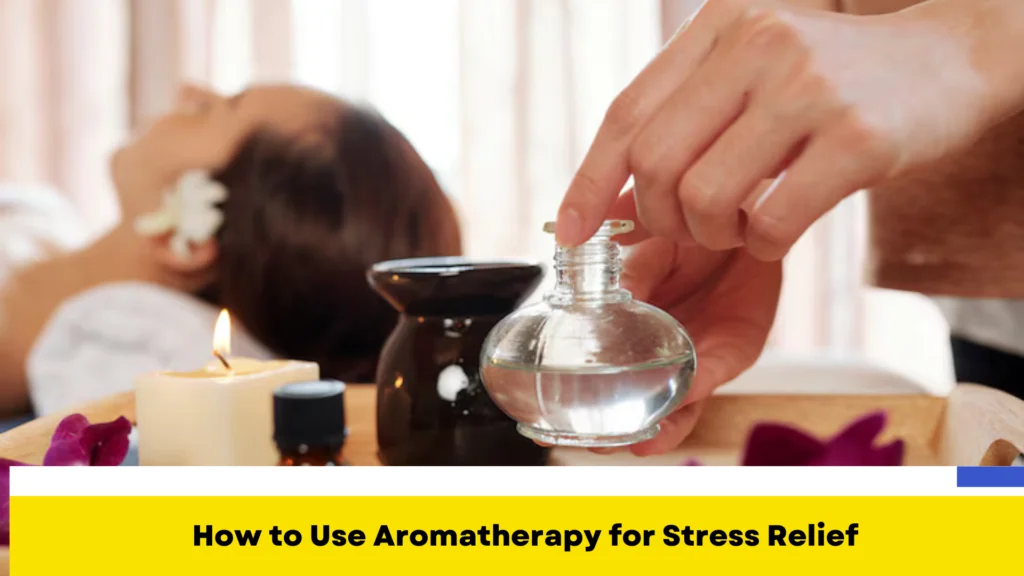Stress is, it is widely known, an elemental survival mechanism of nature. It also triggers some instantaneous reactions in a person, which makes one exposed to danger react either by fighting or running away to be immediately able to escape demanding circumstances. The main goal of the stress reactions and all the body functions is survival; so, they tend to support each other. The hormone cortisol guarantees the imagined reaction of the threat as it enters the body in such large amounts, and one way to ease this is by using aromatherapy for stress relief.
As the blood flows to the limbs, eyes, brain, ears, the initial phase sees the body skin go cold. At the same time, the body temperature rises as it gets ready for physical exercise in case of threat. One begins to perspire; this is a systematic way the body cools itself. Pupils dilation helps to improve eye sight. Dry mouth indicates that the digestive system is less active right now as its action is not necessary. The next act the body has come together to execute is a fight, an argument, or running. After vigorous actions comes peace. Long-term, all systems help the body to release stress and return to normal operation.
Mechanisms of stress development

Stress not only has psychological effects but also seriously influences the body. One should not overlook this fact. Our body turns against us when we start to respond consistently under pressure. With time, the stress hormones—which help a person survive when he is in danger—begin to damage the brain as well as the body. This is partly related to cytokines since, in this condition, they are also produced in great quantities. After some time, a high concentration of stress hormones and cytokines produces insulin resistance, changed cholesterol, increased blood pressure, and active increasing of visceral fat.
Not acting on the stress one is under results in a damaged immune system that leads to diabetes, stroke, heart illnesses, and inflammatory disorders. Stress causes strained and tortured muscles. In turn, a muscle spasm results in unpleasant discomfort, among which the headaches. People who have persistent headaches are mostly affected; muscle tension defines the pain experienced by these people. Persistent raising of level of cortisol causes digestive problems, sleep disruptions, declining of potency, irritability and aggressiveness.
The Impact of Stress on Health

The circadian rhythm is broken when someone wakes up in the morning worn out and tired. Too much cortisol in women affects the hormonal chain; women might not have a period over six months or more. Aside from that, elevated cortisol levels cause type 2 diabetes and infertility. The person is quite tired from constant tension. causes resentment and frustration. Negative ideas circle about and never leaving you alone try to come up with any fix. Still, nothing is able to be done. One gets mental tiredness under pressure.
Depression and exhaustion follow in the next step. Under the effect of that situation, daily chores and work processes become difficult since memory and focus are lowered. Stress is what humans need to respond to dangerous situations. Sometimes, though, it meddles with the functioning of important body systems. One can only be able to live with its effects if one can counter them. Different approaches of stress management help to minimize the negative impact of stress on mental processes and general state.
How to relieve stress?

One of the simplest approaches to relieve pressure given low adverse effects is medical application of aromatic oils. Many smells can help one to calm the body, the spirit, and the mind. Key oils are the basis of aromatherapy, a response of an anxiety reducing tool. Two effects of fragrances on a person are associative and reflexive. This suggests that it generates favorable emotions and feelings, therefore influencing psycho-emotion. The reflexive effect consists in the irritation of the nasopharyngeal receptors coming into touch with the specific areas of the brain.
Thus, particular smells will be able to relax the nervous system, stabilize the heart rate, and increase blood circulation. The therapeutic effect is produced by the mix of reflective and associative elements of the impact. Comprising a complex composition, aromatic oils are volatile oil-like liquids. The molecules are small enough to pass through the skin barrier and enter the body where they work actively.
Conclusion

Depression and exhaustion follow in the next step. Under the effect of that situation, daily chores and work processes become difficult since memory and focus are lowered. Stress is what humans need to respond to dangerous situations. Sometimes, though, it meddles with the functioning of important body systems. One can only be able to live with its effects if one can counter them. Different approaches of stress management help to minimize the negative impact of stress on mental processes and general state.
As the blood flows to the limbs, eyes, brain, ears, the initial phase sees the body skin go cold. At the same time, the body temperature rises as it gets ready for physical exercise in case of threat. One begins to perspire; this is a systematic way the body cools itself. Pupils dilation helps to improve eye sight. Dry mouth indicates that the digestive system is less active right now as its action is not necessary. The next act the body has come together to execute is a fight, an argument, or running. After vigorous actions comes peace. Long-term, all systems help the body to release stress and return to normal operation.
